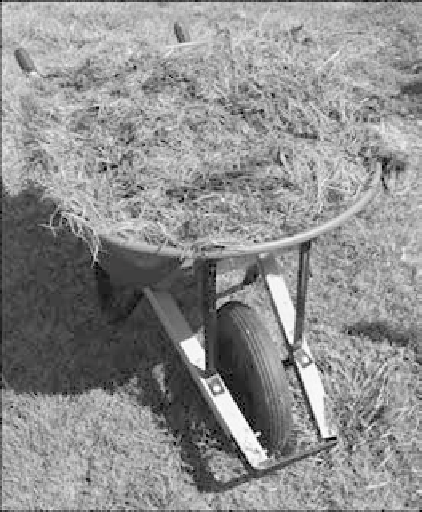Agriculture Reference
In-Depth Information
synthetic and petroleum-based fertilizers that are much more costly to the earth and the health of
the land. The traditional, historical model was much more simplistic on one hand, and infinitely
more complex at the same time.
Over the Garden Fence
According to a 2005 study by Cornell University, organic farming producing the same yields of corn and
soybeans as conventional farming used 30 percent less energy, less water, and no pesticides. The 22-year
trial study concluded that organic farms reduced local and regional groundwater pollution because they
did not use agricultural chemicals.
In our little backyard, for example, the soiled bedding from the goat shed is shoveled into a large
compost pile. Muck from the chicken coop is also added to the compost bin along with the few
plant-based scraps that aren't eaten by either goats or chickens. In the fall the goats are turned
loose in the garden area to clean up any weeds or leftover debris from the garden, and then the
chickens get their turn to scratch around. They consume grubs and pests, while naturally keeping
the soil fertile. The entire bed is covered with any hay the goats have failed to eat so that isn't going
to waste, and the garden increases in fertility for the following season. All this happens without a
single drop of petroleum-based fertilizer needing to be applied.
This wheelbarrow of straw and manure from out of the chicken and goat pens is on its way to the compost
bin. In six months it will feed our soil, which will in turn feed us. If properly managed, the backyard farm can
be a mini-ecosystem working in harmony.
















